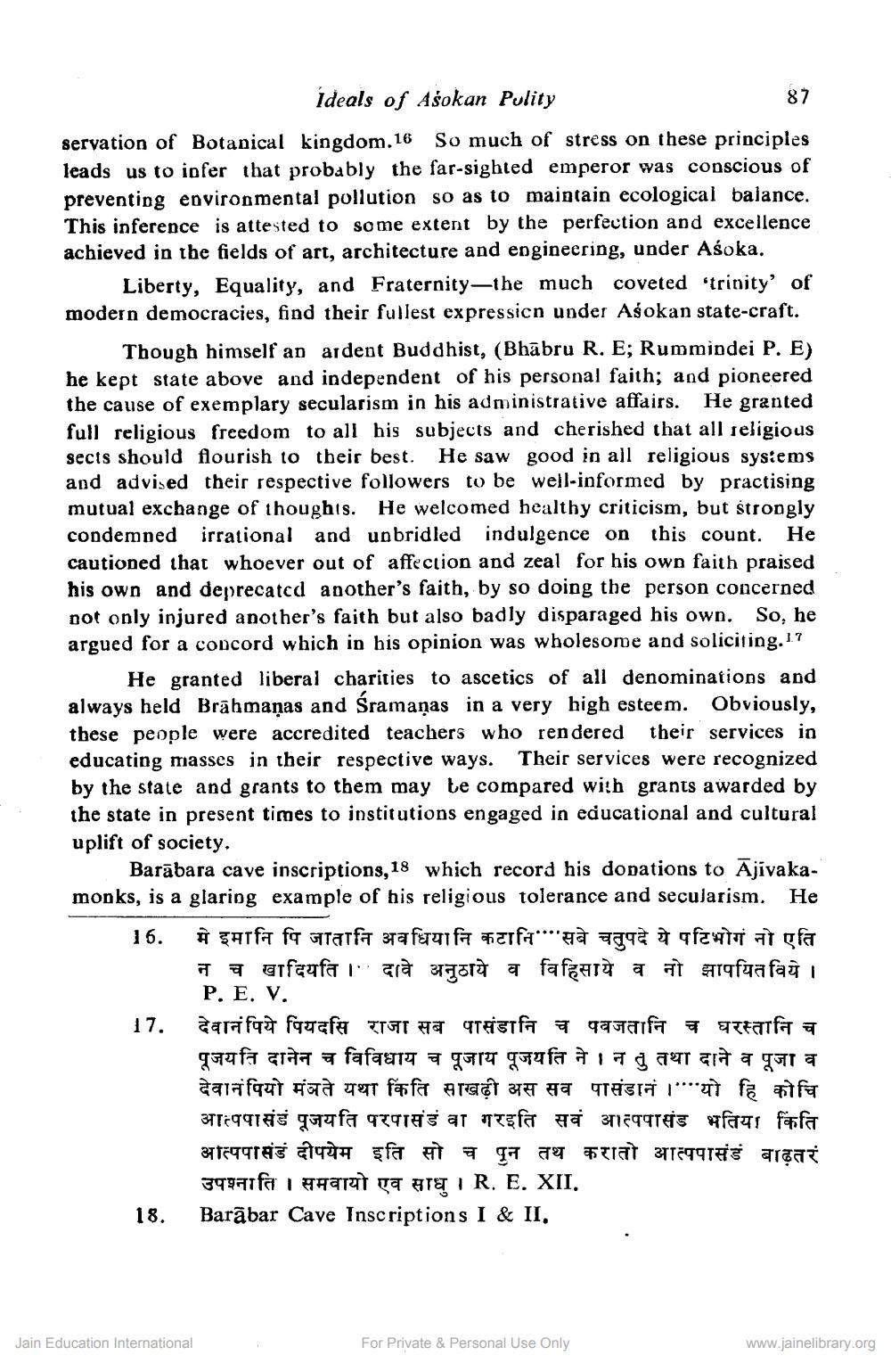________________
ideals of Asokan Pulity
87 servation of Botanical kingdom.16 So much of stress on these principles leads us to infer that probably the far-sighted emperor was conscious of preventing environmental pollution so as to maintain ecological balance. This inference is attested to some extent by the perfection and excellence achieved in the fields of art, architecture and engineering, under Asoka
Liberty, Equality, and Fraternity-the much coveted "trinity' of modern democracies, find their fullest expression under Asokan state-craft.
Though himself an ardent Buddhist, (Bhābru R. E; Rummipdei P. E) he kept state above and independent of his personal faith; and pioneered the cause of exemplary secularism in his administrative affairs. He granted full religious freedom to all his subjects and cherished that all religious sects should flourish to their best. He saw good in all religious sysiems and advised their respective followers to be well-informed by practising mutual exchange of thoughts. He welcomed healthy criticism, but strongly condemned irrational and unbridled indulgence on this count. He cautioned that whoever out of affection and zeal for his own faith praised his own and deprecated another's faith, by so doing the person concerned not only injured another's faith but also badly disparaged his own. So, he argued for a concord which in his opinion was wholesome and soliciting. 17
He granted liberal charities to ascetics of all denominations and always held Brāhmaṇas and śramaņas in a very high esteem. Obviously, these people were accredited teachers who rendered their services in educating masses in their respective ways. Their services were recognized by the state and grants to them may be compared with grants awarded by the state in present times to institutions engaged in educational and cultural uplift of society.
Barābara cave inscriptions, 18 which record his donations to Ajivakamonks, is a glaring example of his religious tolerance and secularism. He
मे इमानि पि जातानि अवधिया नि कटानि""सबे चतुपदे ये पटिभोगं नो एति न च खादियति । दावे अनुठाये व विहिसाये व नो झापयित विये ।
P. E. V. 17. देवानं पिये पियदसि राजा सब पासंडानि च पवजतानि च घरस्तानि च
पूजयति दानेन च विविधाय च पूजाय पूजयति ने । न तु तथा दाने व पूजा व देवानं पियो मंजते यथा किंति साखढ़ी अस सव पासंडानं । "यो हि कोचि आत्पपासंडं पूजयति परपासंडं वा गरइति सवं आत्पपासंड भतिया किंति आत्पपासंडं दीपयेम इति सो च पुन तथ करातो आत्पपासंडं बाढ़तरं
399a7få i Farut Ta gra R. E. XII. 18. Barābar Cave Inscriptions I & II.
Jain Education International
For Private & Personal Use Only
www.jainelibrary.org




